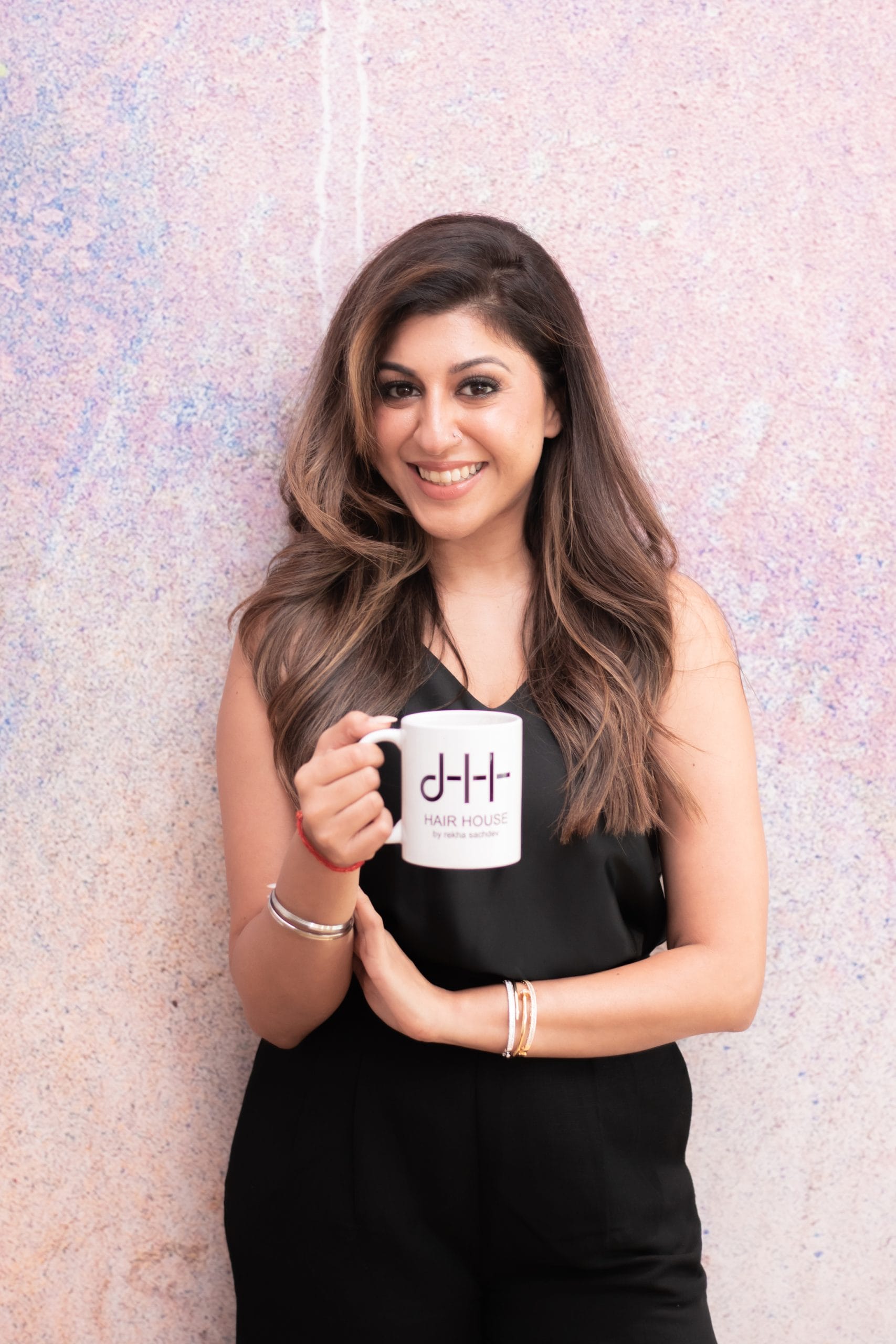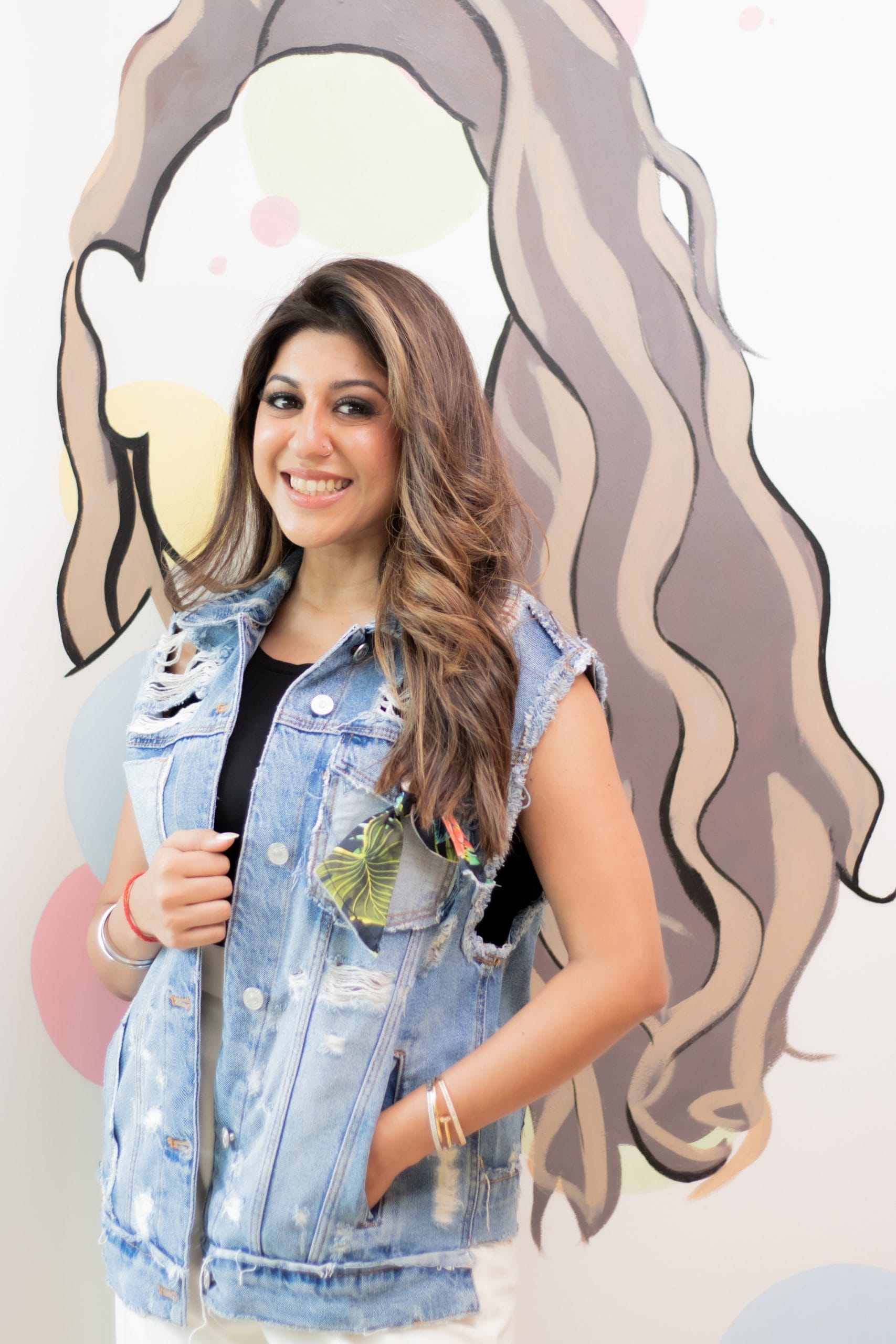Breath of fresh hair.
By Shaan Bajaj
I have never cut my hair; no, not even a trim. Being born in a strict Sikh household, it was and still is a big no-no. I have since built a love-hate relationship with my hair; on the one hand, I adore having a long, thick, black mane, but not cutting it has left me with split-ends and unhealthy hair. Other than occasionally getting my hair washed and styled at the salon, my experience only goes so far, which was why I was looking forward to meeting Rekha Sachdev, one of the first hairdressers in the Thai-Indian community. She founded HAIR HOUSE by rekha sachdev, her own salon that recently turns one this June.
Born and raised in Bangkok, Rekha completed her high-school education in Bangkok, before leaving for Melbourne in 2005, to undertake her Bachelor’s degree in business, specialising in hospitality management. After working 10 years within the hospitality and events arena, she felt like something was missing in her life. “I was actually going to do my MBA but I wasn’t sure if I should,” she recalls. “My sister suggested, ‘you always wanted to be a hairdresser, why don’t you do a course?’ and I called the school of my dreams, BIBA Academy, and enrolled.” She undertook a two-year course, studying three days and working four, before getting her first part-time role in one of the BIBA salons.
As I walked into her warm and colourful salon in Sukhumvit Soi 24, Rekha welcomed me with a huge smile, and a cup of coffee as I settled into one of her salon chairs. Over the next hour, she tells me all about living out her childhood dreams, the process of becoming a professional hairdresser, and the often-overlooked emotional work it requires.
What drew you to hairdressing?
I wanted to be a hairdresser since the age of five. Little kids bought dolls to play with; I bought dolls to play with their hair. My sister and I used to have a play salon called Blondie’s, and ironically, I am a blonde specialist today. It is truly my childhood dream.
What was the process of becoming a professional hairdresser?
I thought it was going to be easy, but it was quite intense. It covered everything in detail, and you learn how to become a people person. That is a huge part in hairdressing, because everything revolves around the relationship you develop with your clients.
How long ago did you start your own salon? What challenges did you face when opening your own business?
I opened in June 2022. The biggest challenge was hiring staff that understood the Australian way of hairdressing, and for me to understand the Thai hairdressing culture. The practices are completely different.
What is one thing you love about having your own business and what is one thing you hate?
I actually don’t hate anything, minus the cleaning up part [laughs]. I love meeting people every day and doing hair. When describing someone, you tend to mention their hair first, as it is a common identifier. I always thought hair was super important and no job is the same. I love every minute of my profession.
You always hear how hairdressers can play such an integral part of an individual’s life. For example, people will often change their hair to mark a new chapter or use it as a space to talk or reflect. Has this been your experience with hairdressing?
I absolutely relate that to hairdressing, and I’ve definitely experienced it. Everyone’s story is different, even if you are culturally the same. You must value everyone equally, and be kind. I share a sisterhood with most of my clients. It’s like therapy.
Every person wants change, and hair grows, so you have to keep changing it. When a client walks through the door, I have to think about their end goal, taking into account their natural hair colour, any artificial colouring they might have, the condition of their hair, the products they use, hair sensitivities, hair type, texture, growth, and length. Once I understand where their hair is, I need to know where they want to go with it, to assess if it is achievable while maintaining the integrity of their hair. I would rather not colour their hair, if I think it will be compromised.
Afterwards, I consider maintenance, and the relationship I am going to build. It can go through many stages, from their engagement to them having a child. People become quite vulnerable when you are handling their hair, and talking to them for up to three hours. What fulfils my soul is that everyone comes in with a problem, and I help solve it. You really do build a relationship, one that we pick up right where we left off at their next appointment.
What hair care tips are an absolute must? What products do you suggest?
- Use a professional shampoo and conditioner, and always speak to your hairdresser about the products you are going to use to see if they are right for your hair.
- Use a heat protectant. It acts as sunscreen for your hair, as the sun can damage your hair.
- No maintenance equals high maintenance; but low maintenance, i.e. using the right products, regular cutting, and treatments, equals low maintenance.
How do you prevent hair damage with coloured hair?
- Regularly cut your hair, every 2-3 months. Your hair is like a plant, and when a plant goes brown, the best thing to do is trim it. Same with your hair.
- Have regular treatments. The type of treatment will depend on your hair type. I am releasing my own scalp elixir to help hair growth soon, and massaging your scalp is a good way to stimulate growth.








